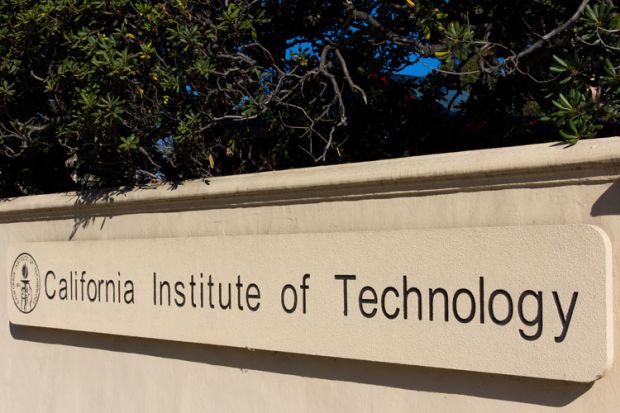Caltech Expert Elected To The National Academy Of Inventors
Viviana Gradinaru (BS ’05), professor of neuroscience and biological engineering and director of Caltech’s Center for Molecular and Cellular Neuroscience, has been selected as a Fellow of the National Academy of Inventors (NAI). The NAI Fellows Program highlights academic inventors who have “demonstrated a spirit of innovation in creating or facilitating outstanding inventions that have made a tangible impact on the quality of life, economic development, and the welfare of society,” according to the academy’s press release.
Gradinaru’s laboratory examines several aspects of the brain, such as neuronal circuits for sleep and locomotion, and methods of gene delivery to neurons. She focuses on developing new neurotechnologies, having created numerous optogenetic actuators and sensors, tissue clearing and imaging technologies, and engineered adeno-associated viral vectors (AAVs) as gene delivery vehicles now used by hundreds of laboratories worldwide. She continues to drive novel technology development, and her future work aims to attain a deeper understanding of the mammalian brain in health and disease. Gradinaru’s research is already being translated for human benefit, with optogenetics, tissue clearing, and gene delivery technologies licensed by companies for gene therapy and diagnostics, including the Caltech spin-off Capsida Biotherapeutics, a fully integrated AAV engineering and gene therapy company for which Gradinaru is a co-founder and board member. She has more than 90 publications in top peer-reviewed journals and 12 patents with additional pending. Gradinaru is an affiliated faculty member with the Tianqiao and Chrissy Chen Institute for Neuroscience at Caltech.
“The focus on basic science and the interdisciplinary environment at Caltech allowed my research group of talented and dedicated scientists to combine neuroscience, protein engineering, and data science to overcome fundamental challenges in neuroscience by creating capsids capable of crossing the blood–brain barrier and potent microbial opsins,” says Gradinaru. “Together these technologies could enable high-precision, minimally invasive repair of diseased nervous systems, and we are now applying these tools and methods to neurodevelopmental and neurodegenerative disorders, for example, to understand brain and gut circuits underlying dysfunction in Parkinson’s disease.”
Gradinaru studied physics for two years at the University of Bucharest in Romania before transferring to Caltech; she graduated with honors in 2005 with a bachelor’s degree in biology. She received her PhD in 2010 in neuroscience from Stanford University. At Caltech, Gradinaru established the Beckman Institute Center for CLARITY, Optogenetics, and Vector Engineering (CLOVER Center) to provide training and access to her group’s reagents and methods for the broader research community. Among other awards, Gradinaru has received the NIH Director’s Innovator and Pioneer Award, the Presidential Early Career Award for Scientists and Engineers, and outstanding young investigator awards from both the American Society of Gene and Cell Therapy and the Society for Neuroscience. Gradinaru is also a Sloan Fellow, Pew Scholar, Moore Inventor, Vallee Scholar, and World Economic Forum Young Scientist. In 2017, she was the Early-Career Scientist Award winner in the Innovators in Science Award in Neuroscience (Takeda and the New York Academy of Sciences); in 2018, she received a Gill Transformative award; and in 2020 Viviana Gradinaru was the winner of Science Magazine & PINS Prize for Neuromodulation and awarded the Vilcek Prize for Creative Promise in Biomedical Science. Gradinaru is also a 2021 AAAS Fellow “for extraordinary achievements in bioengineering and neuroscience, including development and sharing of multiple novel tools to enable functional and anatomical access to the vertebrate nervous system.”

